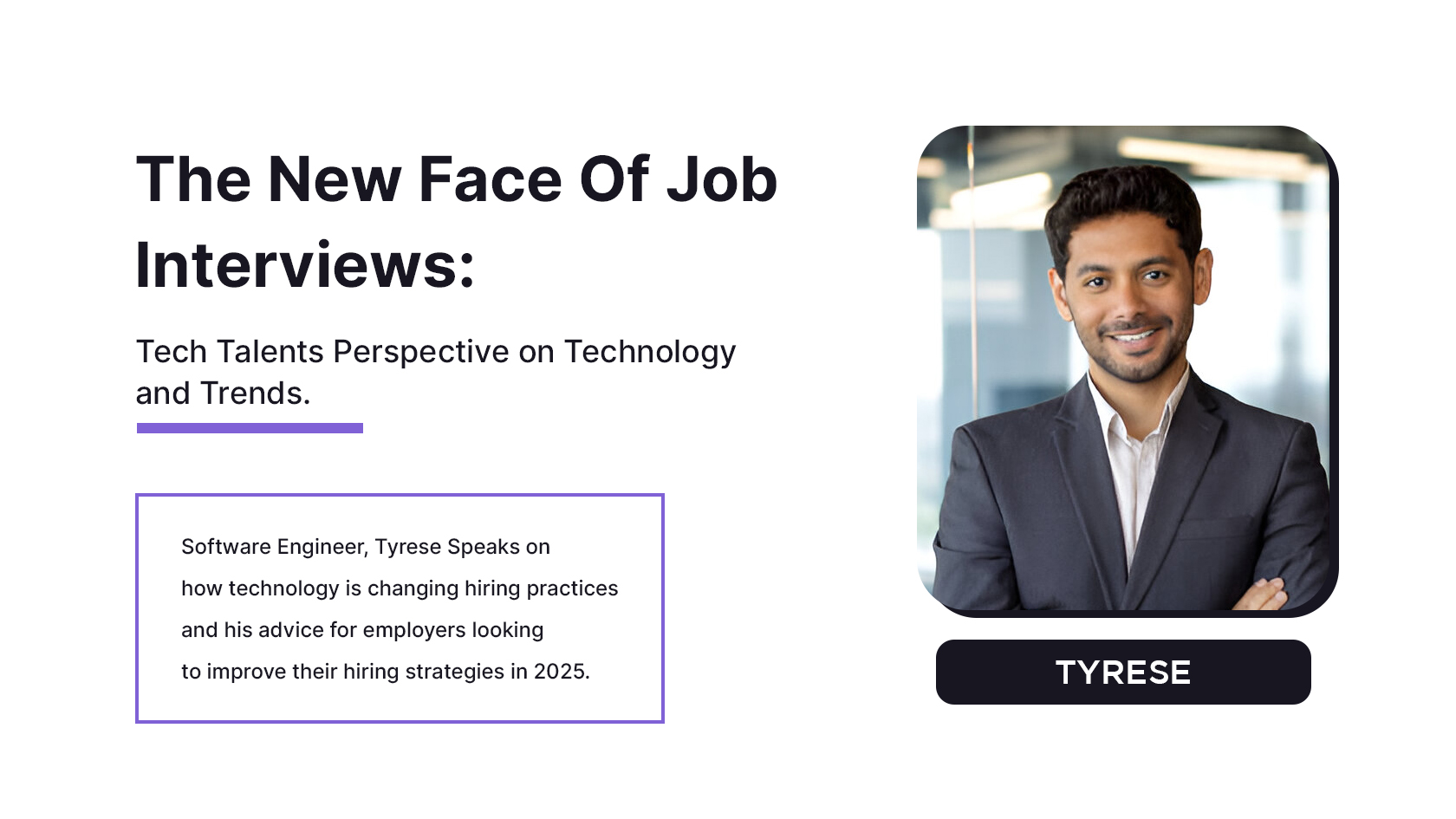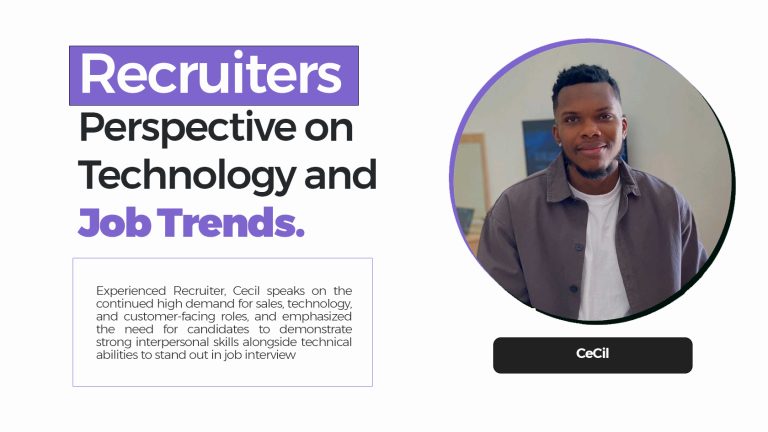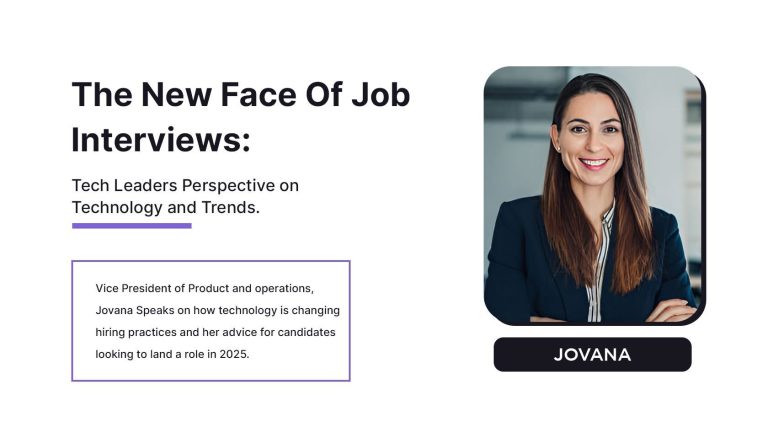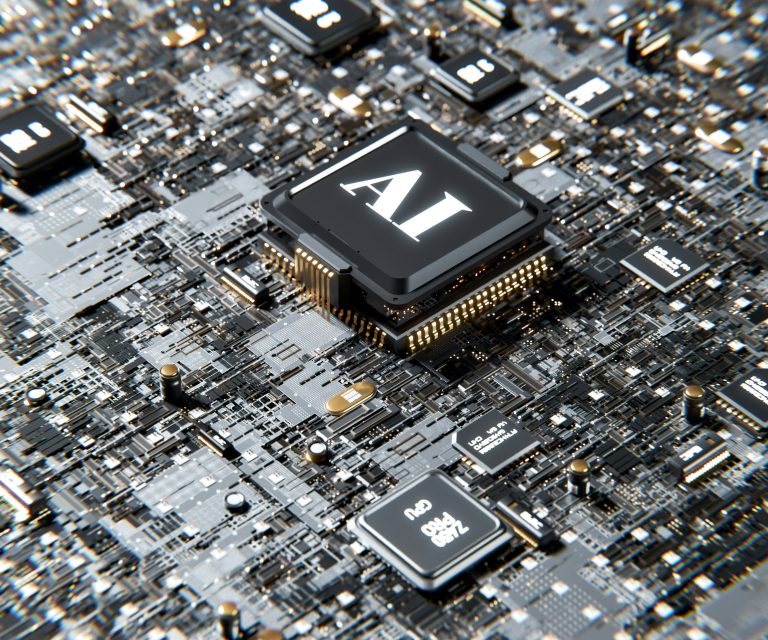Interview questions in the tech industry are evolving rapidly, reflecting the changing landscape of technology and skills required in the field. To gain insights into this experience, we spoke with Tyrese, a software engineer specializing in gameplay programming, about his journey navigating the modern job market and preparing for these new job interviews.
Who is Tyrese?
Tyrese, a recent computer science graduate in his early twenties, has a passion for game development. His primary focus is on gameplay programming, particularly using the Unreal game engine. “I’ve always been fascinated by the mechanics behind video games,” Tyrese explains. “Working with engines like Unreal allows me to bring game concepts to life.”
In addition to his gameplay programming skills, Tyrese has dabbled in computer graphics rendering, gaining experience with APIs such as Vulkan and OpenGL. This diverse skill set demonstrates his willingness to explore different aspects of software development, a quality highly valued in the tech industry.
Recognizing the importance of versatility in today’s job market, Tyrese is proactively expanding his skill set. “I’m currently looking into backend engineering,” he shares. “I’m learning technologies like JavaScript, SQL, and C#. I believe having a broader skill set will open up more opportunities.”
How has your recent job interview process been different from the past? Is there any difference from what you’re seeing now versus what you saw the last time or last two times?
Tyrese: It’s been a challenging journey. I’ve been searching for a job for about a year and a half since graduation. But each application and job interview is a learning experience.
In the tech industry, I had one complete interview process with a game development company. That interview process was one of the much quicker ones. Very fast, traditional three rounds, very respectful of time. Go right through, make a decision, get the offer, join up. Most of my other tech interviews only reached the first round before I was passed over for different candidates.
While searching for full-time tech positions, I’ve also looked into part-time work in the retail and restaurant sectors. Most of the interview process there has been automated a lot more than I would have personally hoped. Many retailers use “virtual job tryouts” as a substitute for a round of interviewing. They do ask important interview questions for how you are going to handle the work, but I do not feel all of them are properly reflective of the candidate’s time and the workplace environment.
For interviews that progressed past automated stages, those have been relatively normal for most retail and service-type stuff. You know, why do you want to work here? What skills do you bring to the table? Strengths, weaknesses, over a good conversation. Smaller businesses have typically been a lot better on that front. These interviews felt more like genuine conversations, with more personalized interview questions.
How do you prepare for technical job interviews, and what advice would you give to other recent graduates?
Tyrese: I regularly practice coding challenges and stay updated on the latest game development techniques. It’s crucial to be prepared for both traditional and more innovative interview questions.
For other recent graduates in similar situations, I’d advise: Keep learning, keep coding, and don’t get discouraged. Every project you work on and every new skill you acquire makes you more valuable to potential employers.
Can you tell us about any work experience you’ve had during this job search period?
Tyrese: I managed to secure a position at a game development startup. Although the contract was short-lived due to company circumstances, this experience provided valuable industry exposure. Working at the startup gave me real-world insight into game development processes and teamwork dynamics.
What are your current career goals?
Tyrese: While my passion is in game development, I’m excited about the possibility of applying my skills in other areas of software engineering. I remain open to various opportunities in the tech industry.
What changes would you like to see in the job interview process by 2025?
Tyrese: I’ve spent the last couple of months just looking into the interview process, why things are the way they are, how different states of different markets can influence the entire process, how individual workplaces and hiring managers can influence the process. It’s challenging to predict exact changes, but I have several suggestions for improving the interview process in the tech industry.
First, I’d like to see less of a focus on lengthy processes, and more of a focus on portfolios, experience, and crucially, training opportunities. I’d suggest a streamlined interview structure: an initial screening with HR or a recruiter, an interview with the direct supervisor, and a final round with either the department head, CEO, or a group interview including team members.
For technical assessments, while they’re important for high-level positions, we need a more nuanced approach. We should differentiate expectations based on experience levels, provide feedback on technical assessments to help candidates improve, and ensure tests reflect actual day-to-day work.
I also think there should be more emphasis on personal projects and portfolios, especially for entry-level candidates. Having to put in the work to get up to design a project and put it all together, that at the end of the day can be a major make or break point.
How do you think companies should approach hiring entry-level candidates?
Tyrese: Companies need to view entry-level hiring as an investment in future talent. As humans, we don’t go from zero to 100 right away. We go from zero to one, two, three to four, all the way up to 100.
Can you elaborate on your idea of a project-focused approach?
Tyrese: Drawing from my educational experience, I advocate for a more project-focused approach in education and hiring. Most of the tests you would have to take weren’t even tests. They were like open notes, knowledge quizzes, for the most part. And that allowed for people to spend more time applying that knowledge and making sure that they properly understand how it plays out in a real-world situation.
This approach could be applied to the hiring process, focusing more on practical application of skills rather than theoretical knowledge alone.
How can technology make interviews more effective and less stressful for talents?
Tyrese: Technology has definitely changed how interviews are conducted, especially with the introduction of virtual job tryouts and basic skills assessments. There are times where it does get overbearing… Some of the tests tend to veer much more into personality tests, which admittedly… can feel dehumanizing.
However, technology can efficiently handle basic skills assessments. Can you figure out how to operate? Can you figure out how this UI works or can you learn how to read a barcode? Stuff like that… with enough practice like that shouldn’t be as difficult.
One of the most significant technological advancements in interviewing is the ability to conduct interviews remotely. You no longer need to be in the same room. That is for a lot of people, especially in my industry… a complete and utter game changer.
How does technology streamline the job interview process?
Tyrese: The technology can speed up the process, but it also can slow it down significantly. Speeding it up in certain ways can reduce stress quite a lot if it gets a lot of the more minute type of details. However, we need to be cautious about over-relying on technology, especially when it comes to personality tests. For some people, it encourages them to be less themselves and more this static face that might… protect the company’s image type thing.
While technology can speed up processes, we also need to be careful not to lose sight of the human element. You’re never properly gonna know how someone fully operates on the job until they are in that job. You’re never gonna know unless you’ve worked with them before.
What recommendations do you have for integrating technology in interviews?
Tyrese: I’d recommend maintaining remote interview options for increased accessibility. We can use hiring tools like InterviewHQ to streamline basic assessments and initial interview screenings. It’s important to balance automated processes with human interaction. We should consider individual circumstances when deciding between in-person and virtual interviews. And finally, be cautious of over-relying on personality tests and automated screenings.
Let’s just lean into that. We should embrace the benefits of technology while maintaining the human elements that make interviews effective.
Looking to strike the perfect balance between technology and human touch in your interview process? InterviewHQ’s AI-powered interview management software can help you achieve this balance. Try it today!
What feedback would you give an employer hiring now or looking to hire in 2025?
Tyrese: When things begin to heat up again for job seekers, they’re gonna remember what’s going on right now. They’re gonna remember a lot of the massive layoffs… Understanding where the candidates have been, especially right now, this is just one weird job market. So really trying to empathize and understand where the candidate is coming from when that time approaches is going to be vital for that process.
Just stop looking for perfection. Don’t look for perfection. If you do that, you will pass up so many good opportunities that will come your way… You might be looking for a diamond in a pile of gold, but don’t forget that there’s a bunch of gold lying around as well.
How should employers approach candidate skills and qualifications?
Tyrese: Just giving candidates a little bit of wiggle room on what they’re able to do and not expecting the exact hyper niche thing that you’re doing and effectively allowing transferable skills and potential growth back into the process.
If it looks like they’ve used AI to modify their resume to properly fit the job description that you’ve posted, give them a bit of wiggle room when inviting them in on that front. However, complete reliance on AI-generated content shouldn’t be encouraged.
How important will AI skills be in future hiring?
Tyrese: Looking out for candidates who know how to use AI versus ones that don’t are going to be an important thing… But at the end of the day, the person still needs to understand why that solution works as opposed to just being able to plug and play.
Should AI replace recruiters in the hiring process?
Tyrese: Absolutely not. The general rule of thumb regarding AI going forward should be, it should enhance workers productivity, not replace them outright… Focus on whether the candidate grows. Are they a good fit? What’s their personality like? Can they solve the problems on their own? And can they learn to work with AI, rather than can I get an AI to do the person’s job better?
Is there anything else you’d like to share that we haven’t covered?
Tyrese: What we’re seeing right now is a lot of people, a lot of very hardworking, well-oriented candidates, even though they are starting to crack and crumble under the weight of everything that’s going on. And part of that is, in effect, the process and what companies are looking for.
Seeking perfection is effectively an impossible goal. And the longer you do that, the more it will hurt, not just you, but the relationships you form, the kind of work you’re able to produce, it leads to burnout again and again and again.
How do you think companies should approach hiring given these challenges?
Tyrese: Just kind of leaning into imperfection and acknowledging it and accepting it and just learning to say, you know what, we humans who are the ones making up a majority of the work, we need some bottom line to keep us working, period.
Companies should consider promoting upskilling initiatives during the job interview and hiring process, ensuring candidates’ basic needs are met through fair compensation, and focusing on long-term employee retention rather than short-term cost-cutting.
Can you elaborate on the long-term implications of hiring decisions?
Tyrese: If you’re not paying the candidates enough, like any of the candidates, enough for them to work, period, based on where you are, then your ultimate, then in the long run, you’re going to have problems with employee retention, and that can result in worse products which can result in profit loss, et cetera. A myriad of things amongst long-term implications.
What’s your final advice for companies in their hiring approach?
Tyrese: Just kind of accepting imperfection and promoting growth goes a very long way, not just for candidates, but for your company, for your business, for the economy. It benefits everyone to slow down, take a moment and say, yes. But we ultimately do want someone who’s the best fit. Learning to compromise at all times, including right now, when things can be rough, is ultimately what is going to make your long-term success even more likely.
Implementing Change with InterviewHQ
As we look to implement these insights and improve our hiring processes, tools like InterviewHQ can play a crucial role. InterviewHQ’s AI-powered interview management software helps companies streamline their hiring process while maintaining a focus on candidate potential and growth. By generating standardized interview questions, providing unbiased candidate assessments, and offering data-driven insights, InterviewHQ empowers companies to embrace a more balanced and effective approach to hiring.
Ready to transform your hiring process and implement these forward-thinking strategies? Try InterviewHQ today and enjoy a 30-day FREE trial.




